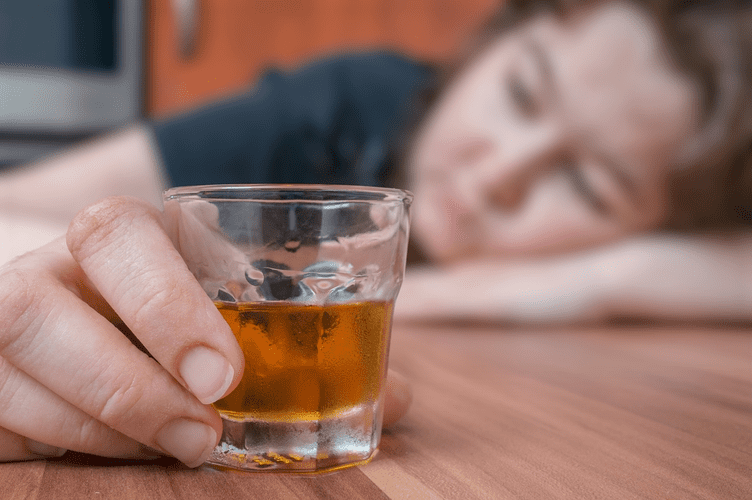For those who develop delirium tremens, monitoring in a quiet room is recommended. Moderate symptoms include hallucinations and alcohol withdrawal seizures (rum fits) that can occur 12 to 24 hours after cessation of alcohol and are typically generalized in nature. About 50% of patients who have had a withdrawal seizure will progress to delirium tremens.

Socialising with friends and family can be important for wellbeing and good mental health, so it might be frustrating if your drinking habits need to change. Avoiding alcohol is the best way to treat these conditions and relieve symptoms. The alcohol will continue to circulate in the bloodstream and eventually affect other organs. Alcoholic neuropathy occurs when too much alcohol damages the peripheral nerves. This can be permanent, as alcohol can cause changes to the nerves themselves. Deficiencies in B6 and B12, thiamine, folate, niacin, and vitamin E can make it worse.
Seizures in alcohol-dependent patients: epidemiology, pathophysiology and management
Some experts link excessive alcohol consumption to the development of epilepsy. There is a condition known as status epilepticus that may result in the seizure lasting longer than 5 minutes, or someone suffering several seizures in a row without a return to consciousness. To reiterate; if medical help has not already been called, this should be done immediately. Inpatient treatment can be accessed easily following a medical alcohol detoxification, and many bespoke recovery programmes are available in the UK.
- In alcohol withdrawal seizures there is no such warning, so these seizures happen suddenly, often catching their victim completely unaware.
- The kinds of withdrawal symptoms you experience will depend on the substance you were dependent on.
- An estimated 50 percent of people who have an alcohol addiction will experience withdrawal symptoms if they abruptly stop drinking.
- She specializes in a variety of health topics including mental health, dementia, celiac disease, and endometriosis.
- As your body adjusts to life without the medication, you may be given medication and therapy options to help you get through the withdrawal phase as safely as possible.
- Of those people, 3 to 5 percent will experience AWD symptoms like grand mal seizures and severe confusion.
Therefore, the importance of direct and indirect alcohol markers to evaluate consumption in the acute clinical setting is increasingly recognized. A summary of relevant markers https://taina.li/forum/index.php?topic=14660.18720 in the emergency setting is given in Table Table3.3. The detection of ethanol itself in different specimens is still a common diagnostic tool to prove alcohol consumption.
What is alcohol-related neurologic disease?
However, benzodiazepines can also be addictive, so they should be taken with a doctor’s guidance. Refractory is a medical term that simply means that a condition is not responding to normal treatments. This can, unfortunately, occur with DTs as well as less-lethal conditions such as depression. In cases of refractory DTs, the symptoms https://ikchel.ru/chto-takoe-pohmele-pohmele-ili-abstinentnyi-sindrom/ have been documented to last as long as 28 days. This is not only extremely unpleasant for the patient but this also increases the risk of dangerous complications as the time of greatest risk is prolonged over several weeks. GABA is an inhibitory neurotransmitter that is responsible for dampening or slowing down signals in the brain.

The production and consumption of alcohol have also been practiced for thousands of years. When you drink heavily, it can lead to various serious consequences, including dependence and addiction. Alcohol is the common name for drinking alcohol, but it’s actually a specific chemical in a broad category of chemicals called alcohol. It is produced naturally through the breaking down of sugars in plants and fruit.
What Are Alcohol Withdrawal Seizures?
This is the period in which delirium tremens is most likely to occur, which requires immediate medical attention. Over time, however, the body builds a tolerance to alcohol, and a person may have to drink more and more to get the same feeling. Meanwhile, the brain is producing http://msestra.ru/viewtopic.php?t=1698&start=10 more and more neurotransmitters, making a person further imbalanced. After treatment, the patient should be referred to AA and urged to abstain from alcohol. For patients without support, a social worker should be involved to help facilitate addiction rehabilitation.
Along with alcohol’s other effects on your heart, you could experience dangerous heart-related symptoms, such as stroke or cardiac arrest. As a response to chronic alcohol misuse or abuse, your body will adapt by tilting your chemical balance toward more excitatory chemicals. Unconscious functions that your nervous system controls will also be affected. That’s why alcohol withdrawal can also cause increased body temperature, fast heart rate, and hypertension.
What Is Alcohol Withdrawal?
If you’ve gone through opioid withdrawal before, you may need to experience the kindling effects. However, alcohol withdrawal can still be dangerous, even without kindling. While other types of alcohol are poisonous to humans, it’s thought that we developed the ability to drink ethanol because it’s naturally produced in fallen fruit.
- Alcohol can also trigger seizures if you have epilepsy and often interacts poorly with anti-seizure medications.
- Chronic depressant use and withdrawal can cause hypersensitivity in your nervous system.
- Some people might appear to be out of the danger zone before suddenly developing the warning signs of an impending seizure.
- This article looks at the connection between alcohol, seizures, and epilepsy, as well as treatment options and support.
- Light, infrequent drinking isn’t linked to seizures, but people who are regular or heavy alcohol users have an increased risk of alcoholic tremors or seizure activity.
- It includes visual hallucinations, tachycardia, hypertension, hyperthermia, agitation, and diaphoresis.
- Someone with a mild-to-moderate alcohol use disorder may have a problem with alcohol without developing significant dependence.
